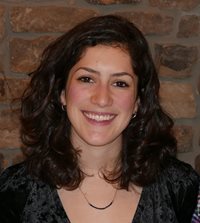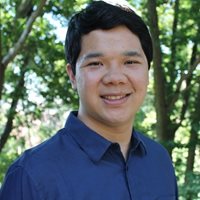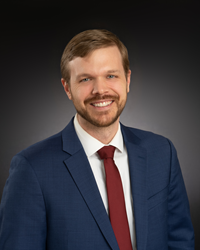Congressional Fellowship Q&A
07 December 2023 15:00 - 16:00
Eastern Time (US & Canada) (UTC -05:00)
Interested in learning about a unique career opportunity for scientists and engineers? Hear from alumni Congressional Fellows about this unique public policy learning experience for Ph.D. scientists and engineers to gain insight into the policy-making process in U.S. Congress while also being able to contribute their technical backgrounds and external perspectives to the process. During this webinar, the speakers will discuss their experience as Congressional Fellows, what they learned during their fellowship year, how it has impacted their careers, and advice for those interested in applying for the fellowship.
What is the Congressional Fellowship? The Congressional Fellowship provides an opportunity for Ph.D. scientists and engineers to spend one year working in Washington, D.C. as special legislative assistant on the staff of a member of Congress or Congressional committee.
Applications are open for both of the 2024-2025 Optica cosponsored Congressional Fellowships. Application deadline is 5 January 2024. For more information on the application process and eligibility requirements, visit www.optica.org/congressionalfellowships
Speakers:
 Dr. Rachel Starr recently joined the team at Clean Air Task Force as the U.S. Policy Manager for Zero-Carbon Fuels and Transportation Decarbonization. She supports the development of and advocacy for policies in the U.S. that promote demonstration and scaling of zero-carbon fuels (ZCFs) production, development of storage and transport infrastructure for ZCFs, using ZCFs towards decarbonizing a variety of end use sectors, and decarbonizing the transportation sector. Rachel collaborates across multiple CATF teams and works on initiatives at the federal and state levels.
Dr. Rachel Starr recently joined the team at Clean Air Task Force as the U.S. Policy Manager for Zero-Carbon Fuels and Transportation Decarbonization. She supports the development of and advocacy for policies in the U.S. that promote demonstration and scaling of zero-carbon fuels (ZCFs) production, development of storage and transport infrastructure for ZCFs, using ZCFs towards decarbonizing a variety of end use sectors, and decarbonizing the transportation sector. Rachel collaborates across multiple CATF teams and works on initiatives at the federal and state levels.
Before joining CATF, Rachel was an Optica/MRS Congressional Fellow in the office of U.S. Senator John Hickenlooper as a climate and energy legislative staffer, and then a AAAS Science and Technology Policy Fellow at the U.S. Department of State in the Bureau of Energy Resources on the critical minerals team. She holds a PhD in materials chemistry from Columbia University and a BA in chemistry from Barnard College. Rachel lives in New York City and in her free time enjoys traveling, playing with her dog, and caring for her rapidly expanding plant collection.
 Dr. Brandon McMurtry is a AAAS Science and Technology Policy Fellow at the U.S. Department of Energy where he supports the department's work to promote the deployment of clean energy technologies. Previously, he worked as a member of U.S. Senator Chris Coons' Energy and Environmental Policy Team as the 2021-2022 Arthur H. Guenther Congressional Fellow. Brandon earned his Ph.D. in Chemistry from Columbia University in the lab of Prof. Jonathan Owen where he studied the synthesis and formation mechanisms of colloidal metal phosphide nanocrystals. Brandon was born and raised in Honolulu, HI and is a proud graduate of the University of Hawai‘i at Mānoa.
Dr. Brandon McMurtry is a AAAS Science and Technology Policy Fellow at the U.S. Department of Energy where he supports the department's work to promote the deployment of clean energy technologies. Previously, he worked as a member of U.S. Senator Chris Coons' Energy and Environmental Policy Team as the 2021-2022 Arthur H. Guenther Congressional Fellow. Brandon earned his Ph.D. in Chemistry from Columbia University in the lab of Prof. Jonathan Owen where he studied the synthesis and formation mechanisms of colloidal metal phosphide nanocrystals. Brandon was born and raised in Honolulu, HI and is a proud graduate of the University of Hawai‘i at Mānoa.

Dr. Danny Broberg is the associate director for the Bipartisan Policy Center’s Energy Program, where he leverages a decade of experience on next-generation clean energy technologies to craft sound policy solutions for carbon management deployment. Prior to joining BPC, he worked on energy policy as an MRS/Optica congressional fellow in the office of U.S. Senator Chris Coons (D-DE), where he drafted legislation to deploy carbon capture at scale, encouraged clean energy commercialization from lab-to-market, and supported energy efficiency measures to address the economic collapse caused by the pandemic. A native of Austin, TX, Broberg holds a PhD in Materials Science from the University of California at Berkeley and a Bachelor of Science in both Mathematics and Physics from the University of Texas at Austin.
